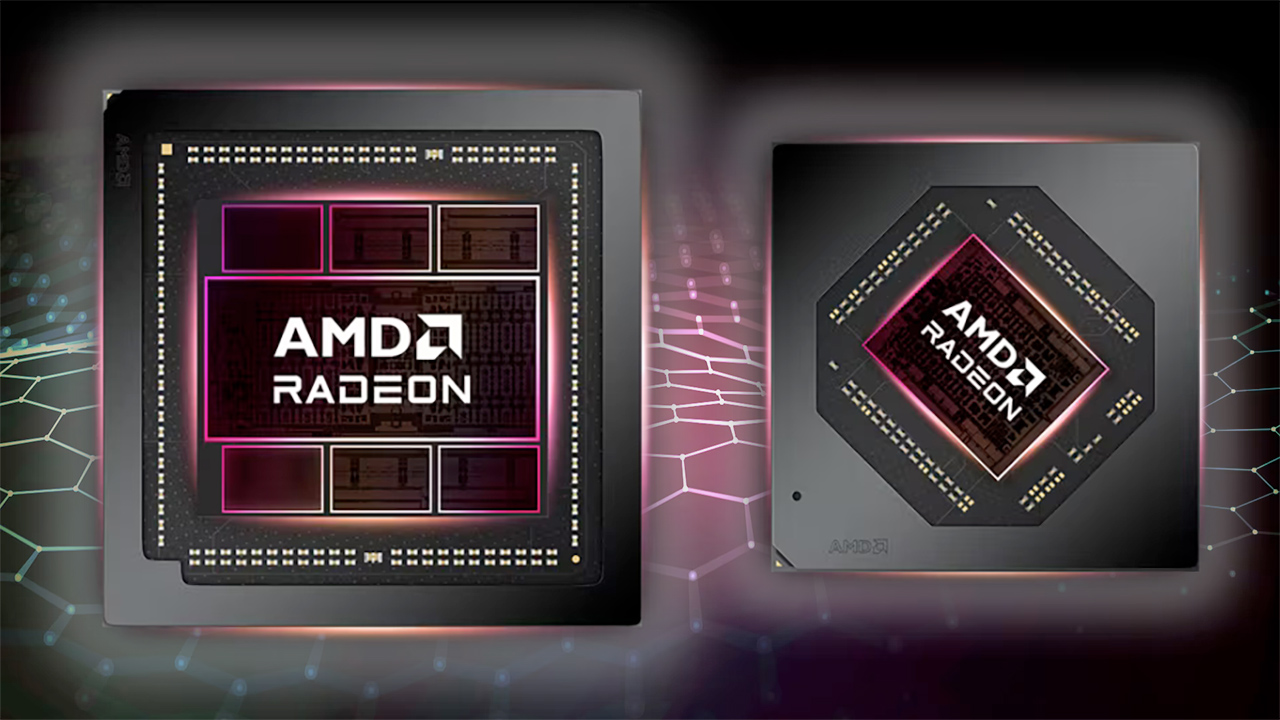
AMD's Radeon RX 7900M graphics processor is designed for the highest-end gaming notebooks, and based on its results in Geekbench 6 compute workloads (discovered by @Benchleaks), the part appears to offer formidable performance and can sometimes beat its main competitor, Nvidia's GeForce RTX 4090 Laptop GPU. Note that these Geekbench 6 compute workloads barely reflect performance in real-world games, so let's not try to read too much into these results. Still, a win is a win, right?
AMD's Radeon RX 7900M is the company's first laptop GPU aiming for the highest end of the market in years. The product uses the company's top-of-the-range Navi 31 graphics processor in a cut-down configuration with 72 CUs (versus 96 on the desktop 7900 XTX), running at up to 1825 MHz (compared to 2500 MHz for the desktop GPU). It also only has four MCDs (Memory Cache Dies), compared to the maximal six MCD configuration on the 7900 XTX desktop GPU.
The 7900M's resulting peak theoretical performance is 38.5 FP32 TFLOPS, which is just slightly lower than peak performance of Nvidia's GeForce RTX 4090 Laptop GPU's 39.7 FP32 TFLOPS. It's also considerably higher compared than Nvidia's RTX 4080 Laptop GPU, which offers just 33.8 TFLOPS. Pure theoretical performance doesn't always imply improved real-world performance, but compared to desktop graphics cards, AMD's Radeon RX 7900M should roughly match the Radeon RX 7800 XT product, which is one of the best graphics cards today.
When it comes to Geekbench 6 compute workloads, AMD's Radeon RX 7900M beats its arch-rival GeForce RTX 4090 Laptop in Vulkan by about 9%, but it's behind the competitor in OpenCL by around 25%. Indeed, Nvidia's drivers seem to be better optimized for OpenCL than for Vulkan, whereas AMD's drivers seem to like the newer API more than the mature application programming interface.
It should be noted that the maximum frequency of AMD's Radeon RX 7900M listed by Geekbench 6 is 1736 MHz, which is significantly below game frequency (1825 MHz) listed by AMD as well as dramatically below peak frequency (2090 MHz) mentioned by AMD. If this is accurate data from Geekbench, it suggests Dell's huge 18-inch Alienware M18 R1 laptop clocks the GPU quite low.
Note also that it's not clear precisely which configurations of the competing Nvidia GPUs were tested, as VRAM clocks can vary from 14 to 18 Gbps, depending on the whims of the particular laptop manufacturer. Also note that, in Geekbench 6, the desktop RX 7900 XTX trails the desktop RTX 4090 in both Vulkan and OpenCL performance by a sizeable margin, so there is at least some evidence that the above numbers are potentially useful.
While the current Geekbench 6 compute results look interesting, performance of AMD's Radeon RX 7900M compared to Nvidia's GeForce RTX 4090 Laptop GPU in actual games will ultimately be a far more important metric. We haven't seen results from such testing yet, but we expect real-world tests will start showing up soon enough.







